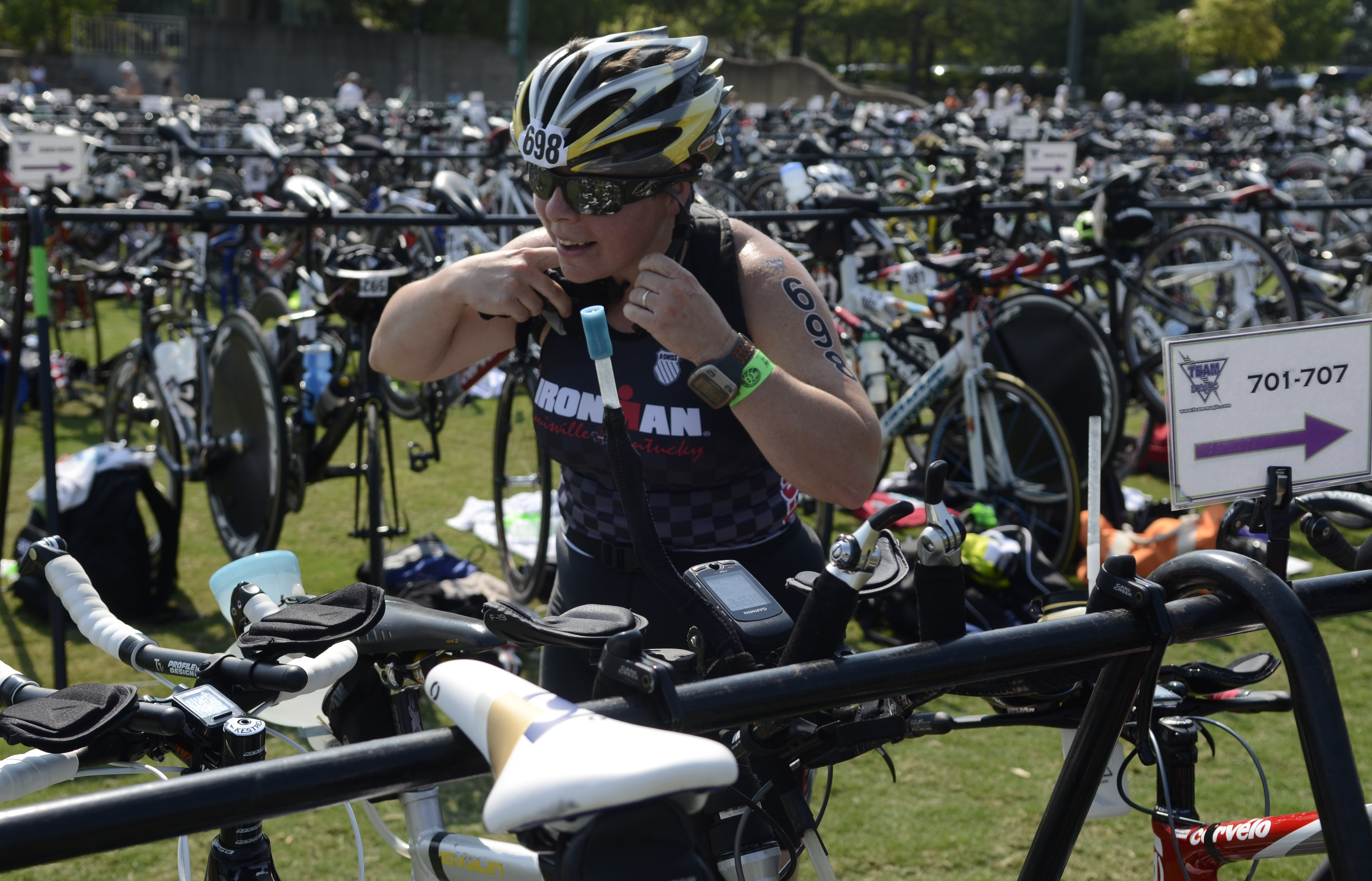Ironman Chattanooga has a message for competitors:
Go. Don't stop.
Word has gotten out through a news report that athletes would be required to stop at stop signs during the bicycle portion of the event on race day.
Triathlon officials want to quash any such notion.
"For 364 days out of the year, bicyclists need to obey the laws of the road," said Ironman Chattanooga local liaison Zach Winchester. "But on race day we'll get somewhat of a hall pass."
With the inaugural running of Ironman Chattanooga just over three weeks away, organizers and community leaders are working to address concerns from athletes and residents along the route.
Walker County leaders and local and national Ironman officials recently held the first of two community information sessions to allow everyone involved to learn more about the race and express concerns about increased traffic on the roads leading up to the Sept. 28 event.
Among the things officials want residents and athletes to know:
• Most of the bike route will have one lane open to vehicular traffic.
• The bike route will be 116 miles, 4 miles longer than the typical Ironman bike course.
• A special outreach is being made to churches along the route because the race is being held on a Sunday morning.
A full Ironman triathlon consists of a 2.4-mile swim, a 112-mile bicycle segment and a full marathon 26.2-mile run, or 140.6 miles in all. The swim and run will be held in and around the downtown Chattanooga riverfront, but most of the bike section will be held on two circuits of a loop in Walker County in Georgia.
With so many athletes competing and training, concerns have been raised about traffic delays and safety.
"Our job is to educate the public and share concerns of the bicyclists and residents," Walker County Chamber of Commerce president Stephanie Snodgrass said. "Generally speaking, this is a great influx of bicyclists in our county, and we want to make sure the public is aware of the law, such as two bicyclists riding side by side.
"I've heard from people on the course who are very excited, and there are others who have some concerns about traffic and delays."
The first community meeting Tuesday raised concerns online because some media reports seemed to indicate racers would be required to stop at all stop signs on race day.
Winchester said that was not the case and all intersections will be manned by badged officers who will halt cross traffic to ensure that racers can proceed without stopping. The route will be open to traffic, but one lane will be reserved exclusively for athletes and monitored by law enforcement on both the bike and run portions of the course.
For racers training in the weeks leading up to Sept. 28, Winchester said, cyclists should obey the rules of the road and obey all traffic signs as any motorized vehicle would. Georgia law requires that cyclists ride no more than two abreast and requires motorized vehicles to give cyclists three feet clearance when passing, but those rules will be adjusted on race day to allow for competitors to proceed at full speed.
Walker County coordinator David Ashburn said planning has been going well for race day, but there have been sporadic issues of cyclists ignoring road rules while practicing.
"They want [drivers] to adhere to the three-feet law," he said. "But when they're riding four and five wide, a car would have to run off the side of the road to give them three feet.
"All we're asking them to do is obey the law and respect the cars just like they want to be respected."
The extra four miles on the bike course are part of the process of serving all parties.
"To best accommodate the needs of the communities in North Georgia and for the athletes' safety, we had to lengthen the course," Winchester said. "It is safer, but it is longer.
"To respect motorists, respect the community of Chickamauga and Walker County, and athletes' safety - those three things are paramount in our world, and that was the reasoning."
Another concern being addressed is making sure area churches are aware of the race so as to limit impact on worship services.
"We have worked very hard to get information to the local churches because the event is on a Sunday morning," Snodgrass said. "We want to make sure they are aware and educate them that there could be a few traffic concerns, but we're working to make that as minimal as possible."
Despite some tensions between athletes and residents, Snodgrass believes Ironman Chattanooga is already paying dividends for Northwest Georgia, and she expects "several hundred thousand dollars" in economic impact for Walker County.
"These athletes usually don't travel alone, and they're seeing the beauty of Walker County," she said. "They're going to shop and eat in our restaurants, buy gas in our gas stations and see what we all love about Walker County.
"There's hundreds of bicycles here every weekend already practicing, so it's not just the one weekend. It's year-round that we're seeing a boost."
Contact Jim Tanner at jtanner@timesfreepress.com or 423-757-6478. Follow him at twitter.com/JFTanner.

